
Related Health Articles
Serious Health Issues Detectable from Eye Photos
SNEC’s deep-learning AI software, Selena+, has since October 2019 been approved for use here. It can detect the presence of several eye conditions from photographs of a person’s ocular fundus (the back surface of the eye). These conditions include diabetic retinopathy, glaucoma, and age-related macular degeneration.
In a study that was published by the New England Journal of Medicine in April 2020, a new AI system was shown to be able to detect swelling in the optic disc caused by a condition known as papilledema. This condition is a strong indication of problems in the brain — such as a tumour — that can lead to loss of vision or life. The AI system has a 96% sensitivity for papilledema.
Prof Dan Milea, one of our Senior Consultants, says this system would be a boon for emergency departments, neurology practices, and even GP clinics, wherever there are medical professionals who do not have specialist training to treat the eye, because the AI system can give an answer very quickly at minimal cost. He adds, “Transferring such skills to AI-based medical devices may contribute to evolving ways of practising medicine at a distance, in order to better protect patients and healthcare providers, especially in our COVID-19 era.”
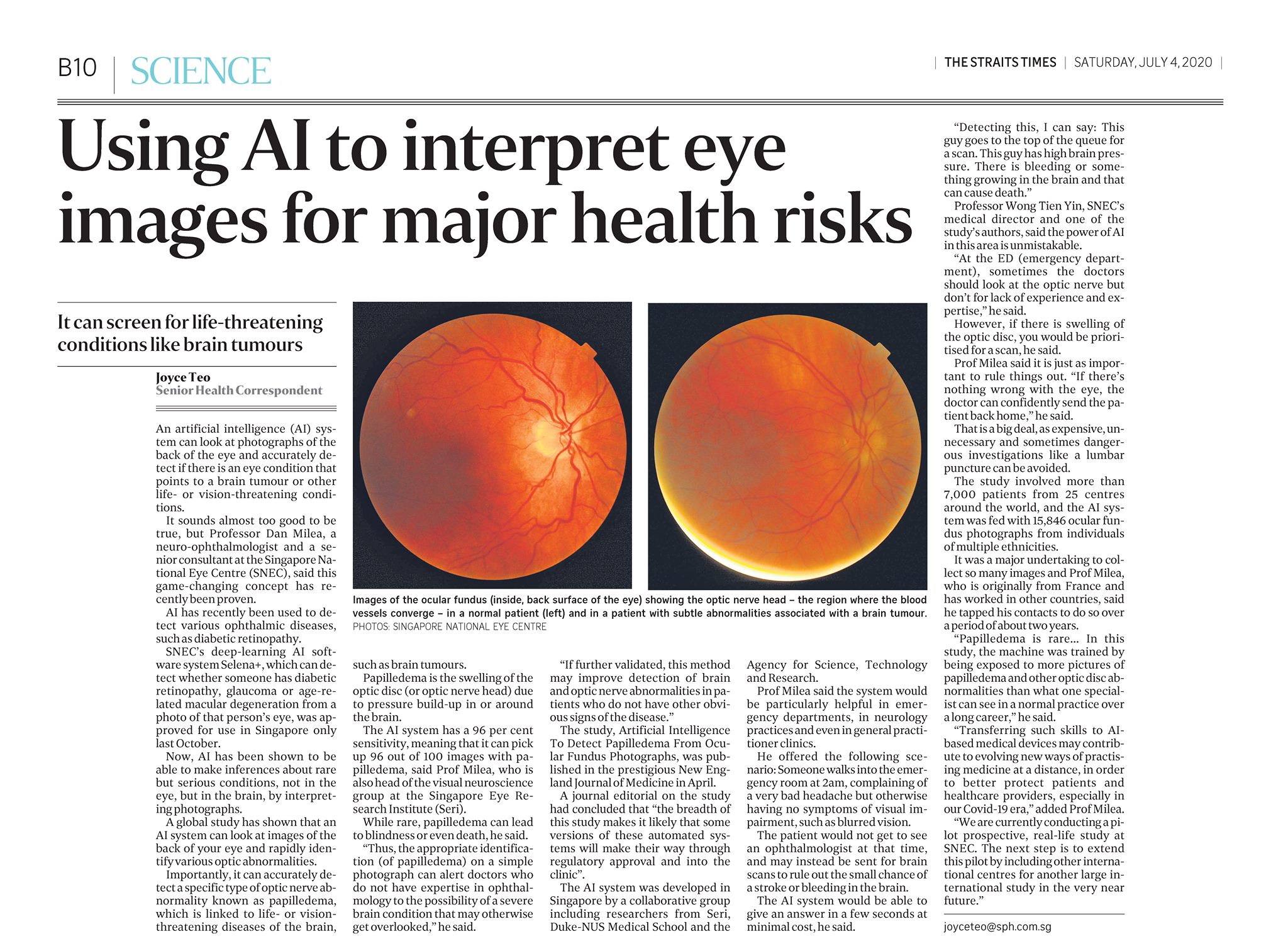
Click here to read the article.
Health Matters -
Glaucoma Management (Part 2)
We posted last Friday about a talk on glaucoma given by Adj Assoc Prof Rahat Husain, on the radio programme Health Matters with Daniel Martin on CNA938.
In Part 2 of that talk, which aired on 21 June 2020, Adj Assoc Prof Rahat shared why telemedicine is suitable for glaucoma consultations.
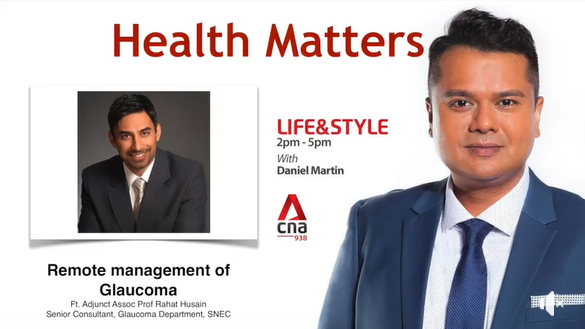
Click here to listen to the interview.
Health Matters - Glaucoma Management (Part 1)
Are you concerned about glaucoma? It’s an eye disease that can lead to blindness.
Adj Assoc Prof Rahat Husain, Senior Consultant in SNEC’s Glaucoma Department, explained everything you need to know but are too shy to ask about this condition on Health Matters with Daniel Martin, first broadcast yesterday.
The second part of that interview will be aired soon. Stay tuned for details.

Click here to listen to the interview.
Telemedicine for Glaucoma Patients
SNEC is pleased to announce that we have, since the Circuit Breaker came into effect, been offering video consultations for glaucoma patients. This form of medicine is particularly suited to this eye condition, as its progression is monitored by taking lots of photos of the affected eye. Says Prof Tina Wong, senior consultant, and head of the Glaucoma Department, “Having good photographs of the front of the eye is as good as if I were to examine a patient physically here.” SNEC intends to offer video consultations to 500 glaucoma patients whose condition is stable by the end of 2020. It hopes to to extend the service to another 3,600 patients in 2021. Glaucoma, one of the leading causes of blindness among those aged 60 years and older, is caused by high fluid pressure within the eyeball that damages the delicate optic nerves.
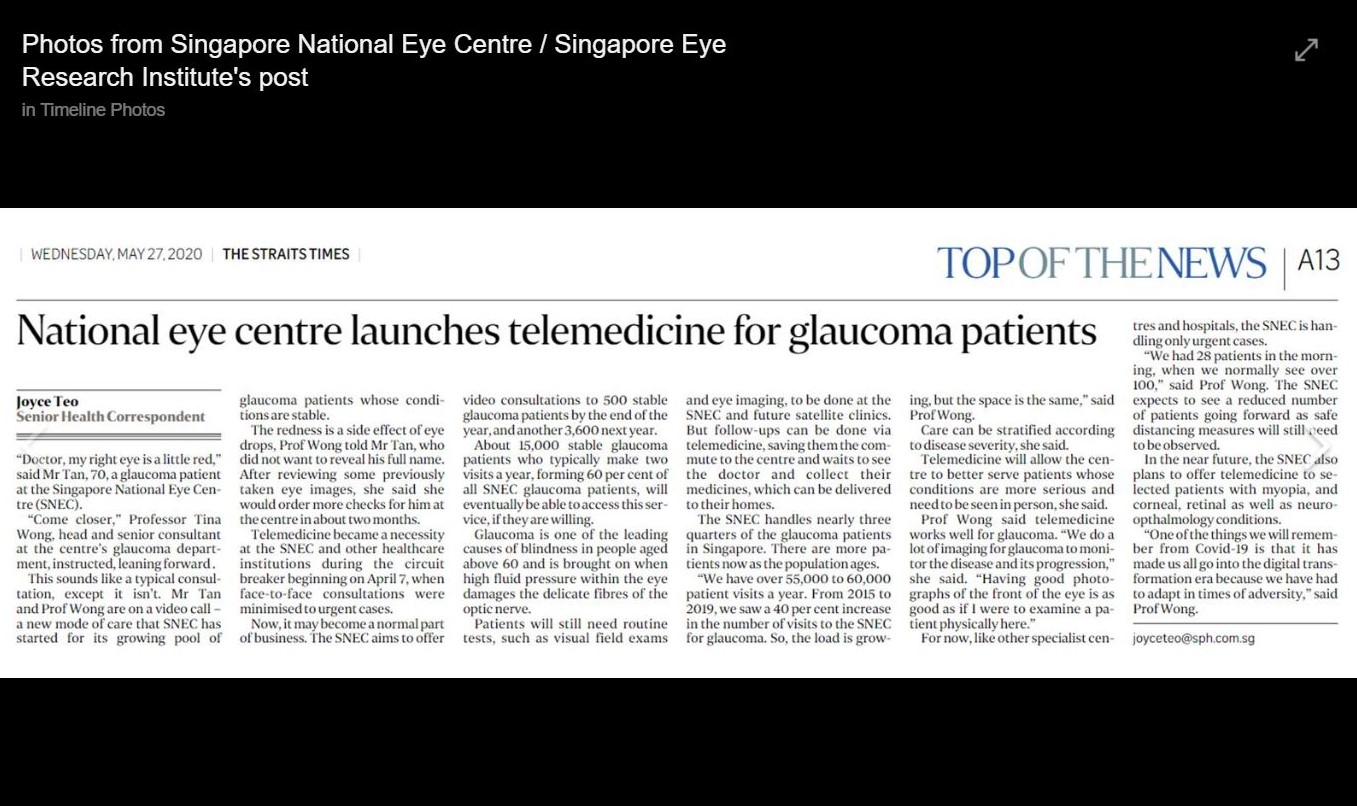
Click here to read the article.
Prolonged Screen Time Bad for Eyes
Not being able to head outdoors freely during Circuit Breaker, most Singapore residents are expected to become even more sedentary during this period — it is highly likely that more people will be tuning in for a longer time to TVs, computers, tablets and smartphones to occupy themselves. Fight the urge and limit your exposure to such screens!
According to an article published by HoneyKids Asia, a sedentary lifestyle and an increased dependency on screen time will lead to a spike in myopia over the next two decades. The article cites a local study conducted by SNEC. It also reveals that Singapore already has one of the highest myopia prevalence among children seven to nine years old, based on information from Assoc Prof Lee Shu Yen, a senior consultant and deputy head of the surgical retina department at SNEC.
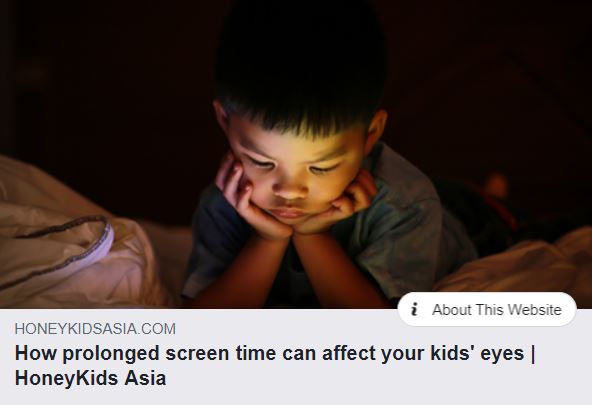
Click here to read the article.
Health Matters - COVID-19 & your Eyes: Listener Questions
Your cataract operation is right smack in the middle of Circuit Breaker — should you go ahead or postpone it? If you do proceed, what additional measures will the SNEC be taking to protect you from COVID-19 during the procedure, including the pre- and post-op stages? Our consultant, Dr Wong Chee Wai, shares all the info you need in his chat with Daniel Martin, host of
Health Matters on CNA938.

Click here to listen to the interview.
Health Matters - COVID-19 entering your Eyes
Keep yourself informed during this circuit breaker period. Tune in to CNA938 to hear our consultant, Dr Wong Chee Wai, talk about a mode of transmission of the COVID-19 virus that you may inadvertently be causing.

Click here to listen to the interview.
Eye Care for Children during Circuit Breaker
While most of us are staying home to stay safe during this period, it is important not to neglect our eye health, especially that of our children. The fight against childhood myopia continues even in the face of COVID-19. Here are some tips from our eye doctors to care for young eyes.
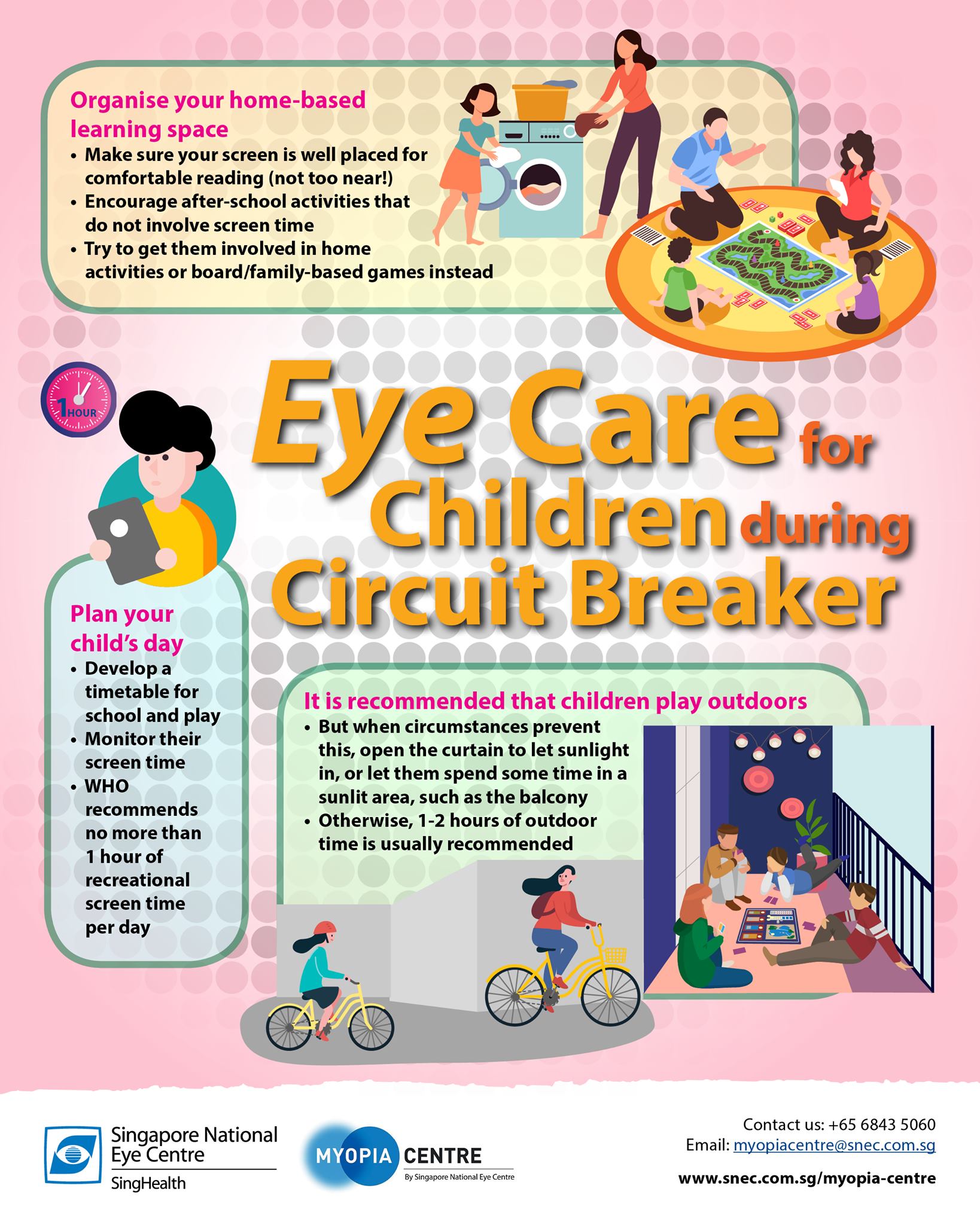
Click here to enlarge the poster.
Eye Care For Adults Working From Home
In times like these, we stay at home to protect each other. How do we care for our eye health during this period, especially when many of us are working from home? If you are experiencing eye strain from prolonged screen time, these tips from our eye doctors should help.
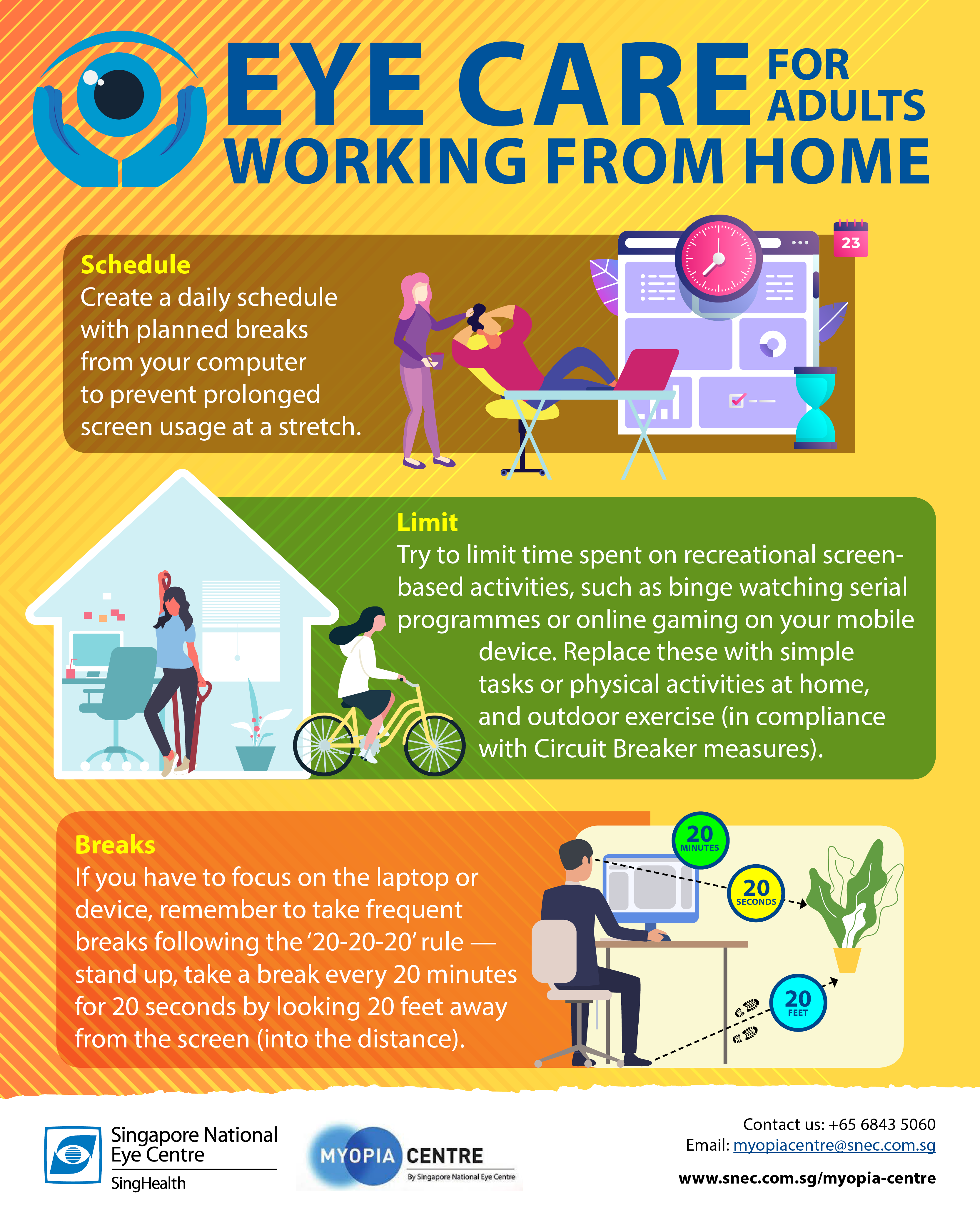
Click here to enlarge the poster.
Taking Care Of Your Eyes During COVID-19
Did you know that SARS-CoV-2 (the virus that causes COVID-19) can remain on hard surfaces, such as glasses, for hours to days?
Adj Assoc Prof Lim Li, Senior Consultant at SNEC’s Corneal & External Eye Disease Department, advises on what you can do to reduce risks of COVID-19 transmission through the eyes, as well as essential eye care tips in this Lianhe Zaobao 联合早报 article.

Click here to
read the article.
Artificial Intelligence to Detect Papilledema from Ocular Fundus Photographs
Sharing a piece of good news amidst the COVID-19 pandemic.
Our SNEC and SERI team, with colleagues from Agency for Science, Technology and Research (A*STAR) and the BONSAI study group comprising members from 11 countries, have recently published a paper on AI deep learning entitled "Artificial Intelligence to Detect Papilledema from Ocular Fundus Photographs".
The multidisciplinary and multinational study has been released in The New England Journal of Medicine (NEJM). The research covered the use of AI to detect papilledema (optic-disk swelling) and other such abnormalities.
Our heartiest congratulations to Prof Dan Milea, Dr Raymond Najjar, Dr Daniel Ting, Dr Caroline Vasseneix, Dr Shweta Singhal, Prof Cheng Ching-Yu and Prof Wong Tien Yin, and other colleagues for the amazing accomplishment!
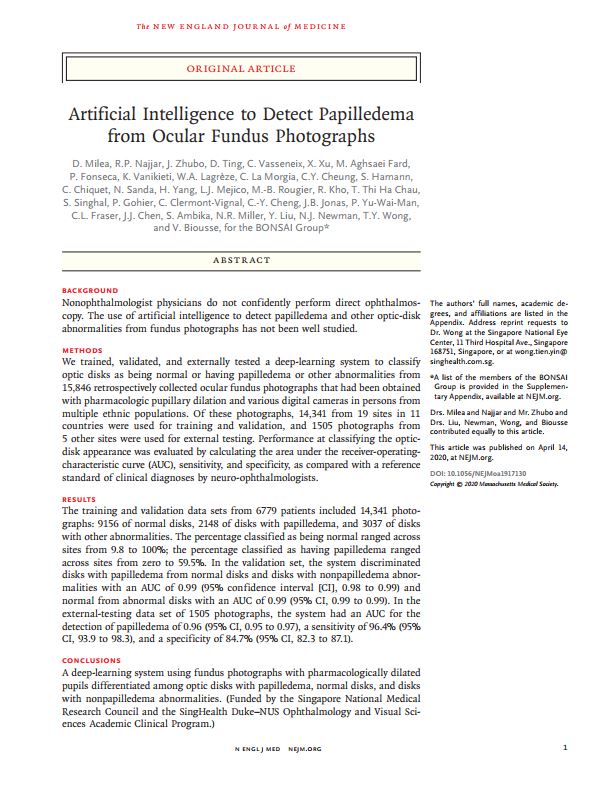
Click here to
read the paper.
Wearing glasses, facial hair: Do these increase the risk of COVID-19 infection?
Are glasses better than contact lenses in reducing risks of COVID-19 infection? How do you wipe down your glasses?
In this article, Dr Daniel Ting, Consultant at SNEC’s Surgical Retina Department, shares important tips on eyewear and how to keep them coronavirus-free.

Click here to
read the article.
